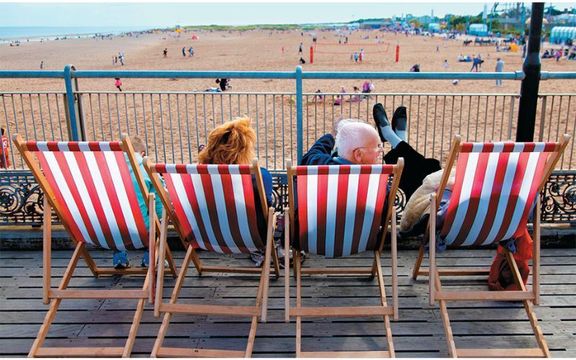
SkegnessFred Marketing LTD.
For the best of the English seaside.
Editor's note: Originally published in 2016.
Funfair rides and rock candy, fish and chips, amusement arcades, chilly beaches, and fishing off the pier: Seaside holidays are as English as tea and pubs.
For generations, English families have looked forward to their summer holiday, when work and school were left behind and they repaired to the seaside for a week or two of fun. Yes, the beach might be pebbly and the weather drizzly, but it was the sea!
In fact, the coastline of England and Wales is lined with scores of seaside towns that owe their existence and their livelihood to the traditional seaside holiday; and no location in Britain is more than a couple of hours drive from one or more.
No two such towns are more famous than Brighton and Blackpool—the “big boys” of seaside resorts and destinations even today for millions of vacationers. Imagine their umbrage, then, when relatively second-tier Skegness on the Lincolnshire North Sea coast decided to take them on—by name—in its marketing campaign.
Skegness. “Skeggie.” Far from the populous industrial cities of Lancashire and Yorkshire whose workers thronged each summer to Blackpool; far from the metropolis of London, whose crowds could make Brighton an outing with an hour’s train ride from Victoria Station: Skegness.
Could such a relatively quiet, out-of-the-way place deliver? This one, I had to check out. After all, inquiring British Heritage readers always want to know! So, toward the end of a seaside resort’s “season,” I made my way up from Peterborough across the Levels into Lincolnshire and along the coast on the A52 to Skegness.
On my initial reconnaissance of the town, two things immediately jumped out. First, Skegness is spotlessly clean—shopping precinct, parks, waterfront Grand Parade and beach. Everything is clean. The second is like unto the first: every building and monument, eating establishment, hotel, and entertainment venue is attractive, well maintained, and generally in good nick.
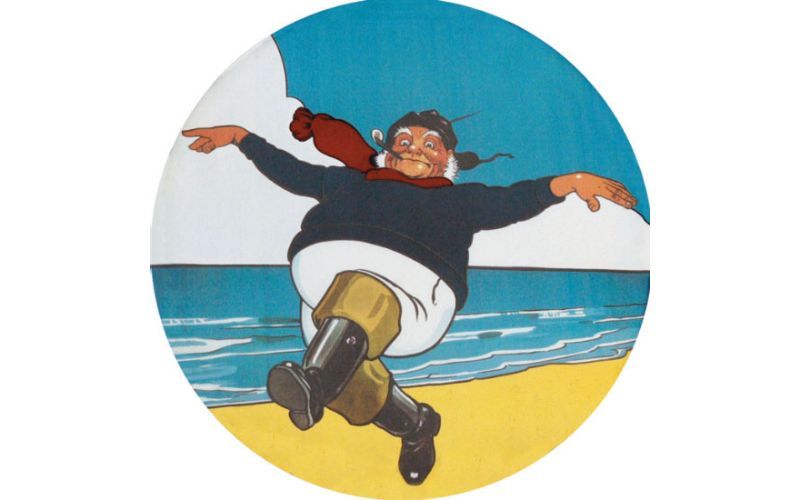
The Jolly Fisherman
“That’s great to hear,” reported James Gilbert when I said as much. “We work hard at that. We invest a lot to make Skegness vibrant and welcoming.” I visited with Gilbert, the Communications Team Leader for the East Lindsey District Council—the fellow whose idea it was to challenge the “big boys” —in the warm café-cum-art gallery at the Embassy Theatre next to Skegness Pier.
“We wanted to put Skegness on the map for more than the traditional bucket-and-spade holiday. What we did that was slightly controversial,” Gilbert admits, “was to take some artistic images of Blackpool and Brighton, and compare Skegness to them.”
“What we found was that we got widespread news coverage for Skegness,” Gilbert said, “but at the same time, we had Brighton and Blackpool taking part in it with us, so they had a platform for promoting what they had to offer. At one point, for instance, we had the mayor of Brighton on local radio. I think we agreed at the end that everyone profited from the promotion.”
‘“Skegness is so Bracing!” has been the slogan since 1908’
“It was successful from the standpoint of what we aimed to achieve,” averred Gilbert. “We wanted substantial national coverage for Skegness as a changing seaside resort—a place to invest, a place to visit, and a place to do business.”
Skegness is, however, first and foremost a seaside resort. Its reason for existence is broad Central Beach, winner of Blue Flag and Seaside Awards for years. It is sandy and clean, and the shallow waters just above the Wash are warmer than you’d think they’d be. The beach is complimented with all the customary seaside accouterments: Skegness Pier, amusement arcades, rides and games, souvenir and candy shops, pubs, and assorted eateries that include two dozen places to get fish and chips. Just across Grand Parade from the beach, behind the hotels and beach-equipage shops, lovely Veterans Park offers a quiet, shady solace from the active life on the parade.
Even with the town largely battening down the hatches for the off-season (mid-October), there is a vitality about the seafront. Many of the arcades and eateries will be open through the winter. The year-round population of Skegness is 21,000; in the summer, Skegness swells to a population of 250,000. “We’ve got the highest concentration of caravans in Europe along this coast,” Gilbert reports.
Among Skegness’s other claims to fame, it is home to the first Butlins—the original all-inclusive holiday camp for families founded in 1936. At one time, Butlins camps dotted the English coast. Now, only three remain, including the vast up-to-date complex just north of Skegness’s town center. More than 4,000 guests can be accommodated in its 1,900 lodging units. Butlins, too, will remain active through the off-season with themed weekends and special events.
Skegness seems pretty comfortable in its own skin. I visited with locals one evening at Harvey's, on the Grand Parade in the Empire Theatre complex. There were several OAPs who frequented karaoke night at the pub. They chose to retire to Skegness for its quality of life and spoke highly of the place. The 20-something unattached males, understandably, were less sanguine about the town’s quietness and small-town feel in the off season.
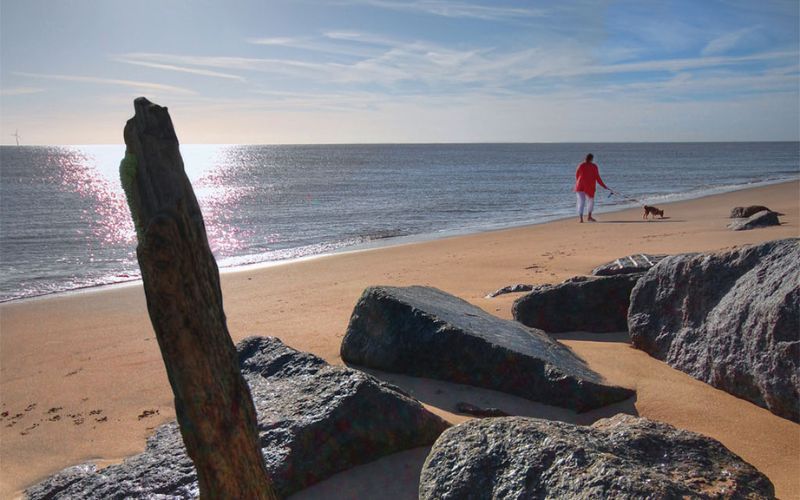
Skegness
Everyone knows, however, that Skegness has been doing this for years. The Jolly Fisherman, Skegness mascot, has been beckoning seaside visitors to town since 1908. He was commissioned originally as a railway poster when the trains came to the then quiet seaside town. “With the railway started to come the people,” James Gilbert advises. “Generation after generation of people have come to Skegness, bringing their children as their parents brought them.”
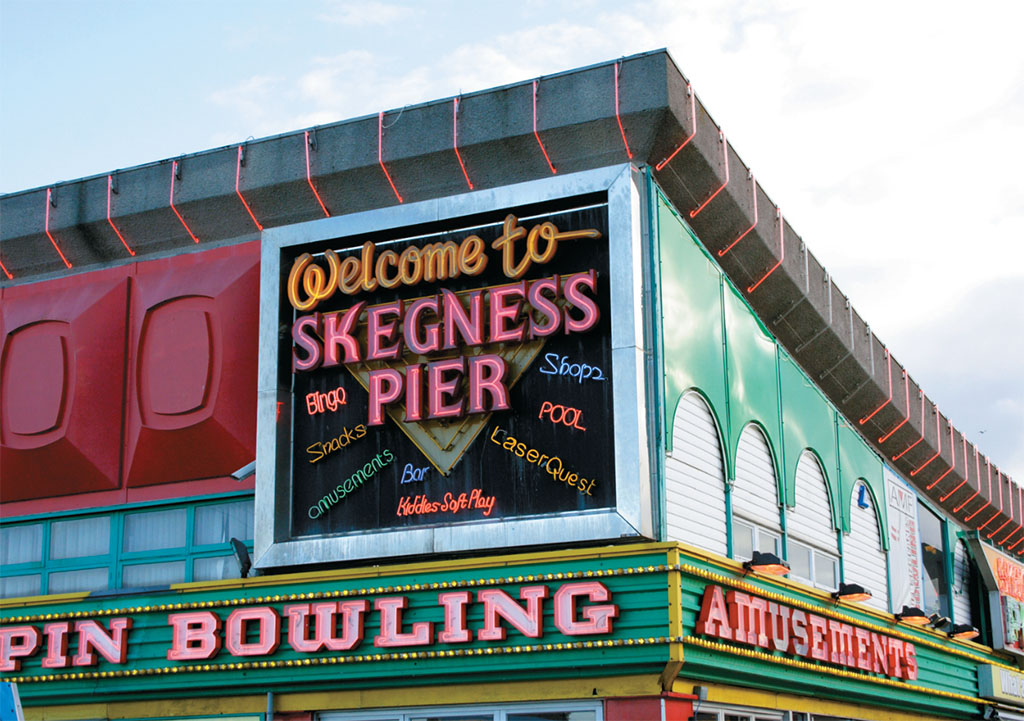
Skegness Pier provides a lovely place to enjoy the sun and the view across the broad sands of popular Central Beach
White-bearded and plump, with a pipe between his teeth, the smiling Jolly Fisherman resembles Santa Claus dressed for hard-weather lobstering, in a souwester and black gum boots. The slogan that has accompanied him since the original image was painted by prolific poster artist John Hassell remains alive today as well: “Skegness is so bracing."
Brighton and Blackpool have their charms, but the English seaside doesn’t get any better than Skegness—and it is indeed vibrant and welcoming.

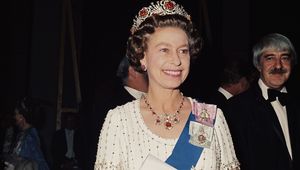


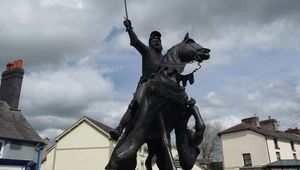



Comments